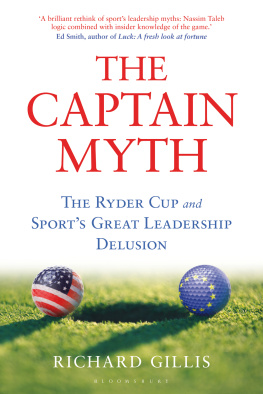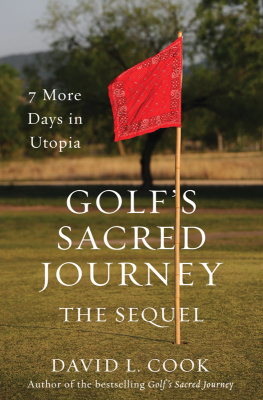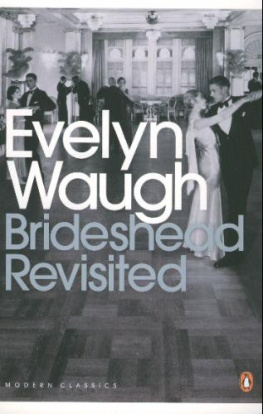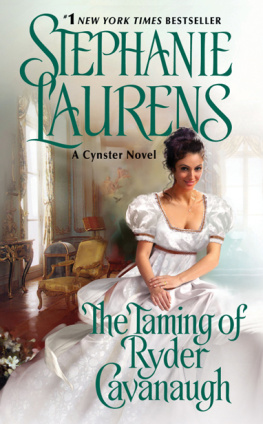
For Penny and Olivia

Contents
The chances of my becoming Ryder Cup captain deteriorate with every passing year, so the views of the men who had done the job were an essential element of this book. These interviews took place over a period in which I was working for a variety of publications, most notably the Wall Street Journal , The Financial Times , The Irish Times and Golf International magazine . Their presence in the book does not represent their endorsement of it.
To the list of captains there are many others I want to thank for their help and generosity. Britains greatest amateur player Peter McEvoy offered his enthusiasm and knowledge without complaint, and I thank Keith Waters of the European Tour for his patience while I quizzed him for hour upon hour at Wentworth, trying to understand how the world rankings work. Talking to Professor Gary Hamel at London Business School was an education in itself. Thanks also to Dr Bob Rotella and Professor William Hurley for their contributions. The initial idea for the book arose from the enjoyable hours spent working with the sage of the sports marketing world, Shaun Whatling.
Whenever I mentioned to anyone that I wanted to write a book, they all told me I should talk to David Luxton, the best agent in the business. So I did, and here we are. Davids invaluable help led to my second stroke of luck. Writing the book brought me into the orbit of the brilliant Charlotte Atyeo, the publisher of Bloomsbury Sport. I cant thank Charlotte enough for her endless patience and good advice as she prodded and poked my random outpourings until they emerged two years later, looking book shaped.
Ian Preeces comments and skilful editing were invaluable, as was the help from Holly Jarrald and the team at Bloomsbury in London and New York.
Writing about golf has been a happy accident, encouraged by Richard Simmons, Pete Simmons and Robert Green at Golf International, and I cherish our annual adventures at The Open. My thanks also go to Peter Chapman at the Financial Times and Jonathan Clegg and Joshua Robinson, sports editors of the Wall Street Journal in London. Kevin Roberts gave me my first proper break in journalism and remains the kindest, smartest person I know in the sports business.
Jo Simmons, Steve Lowe, Jude Shard, Simon Heap and Jaine Colwill Heap will never know how much they helped to keep my spirits up with their interest, encouragement and red wine, and Martin and Suzanne Miell Ingram endured night after night of incoherent ramblings in the bars across northern Spain. To Andrew Peel, Richard Hingley, Adrian Pettett, Tony Gill, Steve Tompkins, Dave Tompkins, Colin Burles and Barry Seymour, I apologise for my golf, but thank them for a lifetime of friendship.
Often while I was writing this book Id think of my dad, George Gillis. I wish I had the chance to talk to him about it. Mum, Lyn, Sandra, Mark and I miss him now as always.
Finally, to Penny and Olivia, without whose support emotional, financial, editorial this book would never have seen the light of day. You know how much I love you but its nice to get the chance to say it publicly.
Be suspicious of the because and handle it with care
Nassim Nicholas Taleb, The Black Swan
The Ryder Cup is one of the worlds great sporting moments. Every two years the best golfers from America and Europe compete over three intense and emotionally charged days of high-quality sporting drama.
The events global media profile has transformed the role of the team captain, who has become a major figure in the sporting landscape on both sides of the Atlantic, golfs contribution to the leadership industry, taking his place alongside the head coaches of the Major Leagues and the superstar managers of European football.
Yet the Ryder Cup captaincy doesnt easily fit the usual sports leadership template. He has limited input into the selection of his own team and he has no contractual authority over the players. The job is unpaid beyond generous expenses and he usually has little previous experience in a comparable role. Many of the team members are his direct peers a group of highly skilled, highly motivated professionals at the very peak of their careers. Faced with this scenario, the traditional management levers of command and control have little relevance, making the role more nuanced and ambiguous than most.
Despite these apparent shortcomings, the captain is the lens through which we watch the event, his every decision parsed for meaning as we seek answers as to how to win the Ryder Cup, the all-important because.
What type of leader is he, we wonder? Does he have an appetite for change, new ideas and a team of rookies? Or is he a steady-as-she-goes, dont-rock-the-boat merchant? Will he put his faith in the mercurial Flash Harry flop shot wizards or the men in grey and beige who play the percentage game and get the job done with no frills and frippery?
Then theres strategy. Will he go early with his big guns, or leave them to fight it out at the end? Should his pairings be based on technical factors like length and putting skill, or on personality? Does he divide them into pods or put their names in a hat? Should he do what Tony Jacklin did and play his best players in every session, or should he break up the stars and ensure everyone plays every day? Should he try to build a lead and hang on like Mark James, or rest his best players for Sunday like Davis Love? Then theres delegation: how many vice-captains does he need? Five like McGinley or one like Faldo? What about the course set-up? Should he trim the rough or let it grow, make the greens fast or slow? How does he motivate his team? Does he shout and holler, or put his arm around their shoulder? Will he send them out to battle with memorable quotes from great warriors, or remind them of their place in history with pictures on the walls of the team room? Should he get Sir Alex Ferguson to inspire his players or have President Bush read to them about the Alamo? Should he pray to God or Seve Ballesteros?
All of these questions are part and parcel of our enjoyment of the game, an attempt to make sense of what we see when the two teams come together. Ryder Cup history is divided into two over-arching storylines in which Americas dominance has been overcome by the rise of Team Europe. Between 1927 and 1983, Team USA won 21 matches and halved one out of a total of 25, an 86 per cent winning record. Then, in 1985, Tony Jacklin led Europe to victory at the Belfry, inflicting the first defeat on America since 1957. Since that match, Europe has held sway: between 1985 and 2014 they won ten matches and tied one, a winning record of 70 per cent.
It follows that the stories we tell about the captains, the teams and the event itself must not only record the results they must help make sense of them. These explanations are closer to myth than fact: assumptions that have no proven scientific basis, but which are commonly used as a version of the truth and which contrive to render the story of the event credible.
But winning the Ryder Cup can be misleading: the results often distort our analysis of what makes a good captain or a good team. This is because the only concrete evidence to support the winning captains methods is the result. His team won, so we must find reasons for that victory. What he did must have worked. We wont accept that he did everything wrong and won, because that is a less coherent and satisfying story. Whoever heard of a bad winning captain?











